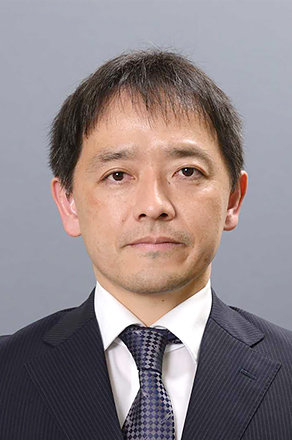
Development of Molecular Sensors and Devices for Precise Monitoring of Cellular Electrical Activities
Laboratory for Neural Information Physiology
Associate Professor:TSUTSUI Hidekazu
E-mail:
[Research areas]
biophysics, neurophysiology, molecular & cell biology, bioengineering
[Keywords]
neuron, synapse, molecular sensor, next generation electrophysiology
Skills and background we are looking for in prospective students
A background in neurobiology, molecular and cell biology, biophysics, and electrical engineering can facilitate the smooth initiation of a solid research project. However, we fully support students with limited prior knowledge in these fields. Instead, we place greater emphasis on scientific motivation and intellectual curiosity.
What you can expect to learn in this laboratory
Basic and advanced experimental techniques concerning molecular biology, electrophysiology, fluorescence imaging, and bio-engineering; Comprehensive understanding of principles underlying various cellular phenomena and their applications to biomedical science.
【Job category of graduates】 Research and development in biomedical industry, manufacture, information technology
Research outline
We aim to develop molecular sensors and devices capable of achieving precise spatiotemporal detection of dynamic cellular activities, with a primary focus on parallel measurements of electrical signals. Cellular electrical signals, characterized by voltage differences across the cell membrane, propagate rapidly and play crucial roles in various physiological processes, including secretion, contraction, and neural transmission. Notably, the dynamic modulation of electrical signal flow within neuronal networks is thought to underpin neural functions. To uncover the fundamental principles of these processes, one of the most sought-after technologies is the sensitive detection of spatiotemporal electrical activity within complex networks of excitable cells.
One ongoing approach involves protein-based voltage probes that can be genetically encoded under the control of cell-type-specific promoters. We investigate the biophysical properties of membrane proteins that undergo voltage-dependent structural transitions and utilize this knowledge to design robust voltage probes. Additionally, we are interested in visualizing electrical phenomena in organelle membranes and exploring biomedical applications of these sensor technologies, such as developing efficient drug screening platforms. Techniques employed in this research include conventional molecular biology, electrophysiology, photometry, and fluorescence imaging.
We are also working on the development of next-generation electrophysiological measurement methods. Electrophysiology refers to a collection of techniques that use fine electrodes made of metal or glass to investigate the electrical phenomena of cells. Although these methods have a long history, they remain indispensable and powerful tools in cutting-edge research today. However, they still have inherent limitations, such as the lack of intrinsic cell-recognition capability. Our laboratory is addressing this challenge by integrating the molecular mechanisms underlying neuronal wiring in the brain with microelectrode technology.

Figure 1.
(left) A hippocampal neuron expressing a fluorescence sensor for membrane voltage.
(center) Simultaneous photometry and electrophysiological recordings.
(right) A SEM image of the prototype device for parallel interfacing of cells.
Key publications
- K. Sekine, et al., Neuron-microelectrode junction induced by an engineered synapse organizer, Biochem. Biophys. Res. Commun. p149935, 2024.
- W. Haga, et al., Development of artificial synapse organizers liganded with a peptide tag for molecularly inducible neuron-microelectrode interface, Biochem. Biophys. Res. Commun., vol. 699, 2024.
- Tsutsui, H. et al., Improved detection of electrical activity with a voltage probe based on a voltage-sensing phosphatase. J.Physiol., 591, 4427- 4437 (2013).
Equipment
fluorescence/luminescence live cell imaging systems
electrophysiology and photometry rigs
electrochemical analyzer
cell/tissue culture & molecular biology equipment
Sputtering system; SEM (JAIST common facilities)
Our lab's strength in Transdisciplinary Sciences
While, in our laboratory, we explore innovative methods to measure cellular electrical activities and investigate the protein biophysics aiming to reveal the basic physiology of excitable cell networks, various potentials may go beyond the traditional research framework, such as the possibility of making drugs faster and safer and contributing to efficient hydrogen production. By blending your ambitious ideas with the diverse latest knowledge of the faculty members, one can take on the challenge of highly original, multidisciplinary research activities that will open up a new era.
[Website] URL : https://www.jaist.ac.jp/ms/labs/tsutsui/wordpress/